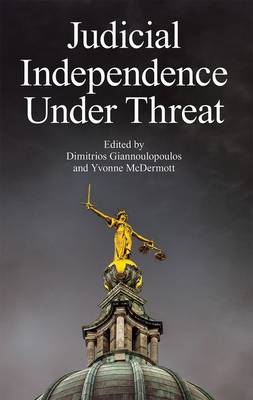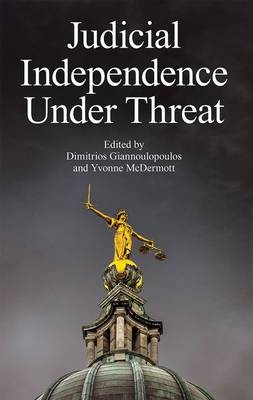
- Afhalen na 1 uur in een winkel met voorraad
- Gratis thuislevering in België vanaf € 30
- Ruim aanbod met 7 miljoen producten
- Afhalen na 1 uur in een winkel met voorraad
- Gratis thuislevering in België vanaf € 30
- Ruim aanbod met 7 miljoen producten
Zoeken
Judicial Independence Under Threat
€ 145,45
+ 290 punten
Omschrijving
Judicial independence is increasingly under threat. The rise of populism risks undermining the separation of powers, with some politicians, media outlets and members of the public taking aim at judges, labelling them as part of the establishment and the elite, the 'enemies of the people'. Judicial Independence Under Threat seeks to situate these contemporary challenges to judicial independence in their proper legal, philosophical, political and historical contexts. It brings academic scholars from a variety of disciplines together with judges, politicians and legal professionals and asks what core shared values of our legal and political systems judicial independence seeks to protect, and how threats to that independence can be protected against. What can we learn from comparative, historical, political, philosophical, and legal insights on the separation of powers, and what means can we discover to prevent against challenges to the independence of judges in times of crisis?
Specificaties
Betrokkenen
- Uitgeverij:
Inhoud
- Aantal bladzijden:
- 282
- Taal:
- Engels
- Reeks:
Eigenschappen
- Productcode (EAN):
- 9780197267035
- Verschijningsdatum:
- 19/12/2022
- Uitvoering:
- Hardcover
- Formaat:
- Genaaid
- Afmetingen:
- 163 mm x 239 mm
- Gewicht:
- 566 g

Alleen bij Standaard Boekhandel
+ 290 punten op je klantenkaart van Standaard Boekhandel
Beoordelingen
We publiceren alleen reviews die voldoen aan de voorwaarden voor reviews. Bekijk onze voorwaarden voor reviews.










